Speaking shortly after the 2014 general election, Iowa’s senior U.S. Senator Chuck Grassley, in line to chair the Senate Judiciary Committee, promised to “work to confirm consensus nominees” for the federal bench, based on factors such as “intellectual ability, respect for the Constitution, fidelity to the law, personal integrity, appropriate judicial temperament, and professional competence.”
But as the Alliance for Justice noted in a recent report on judicial confirmations in 2015,
Only 11 [federal] judges were confirmed, the fewest in a single year since 1960. Only one court of appeals judge was confirmed, the worst since none were confirmed in 1953. And as confirmations dwindled, vacancies shot up. In 2015, vacancies rose from 43 to 66 (they’ll hit 70 by January 1), and officially-designated “judicial emergencies” went up nearly 160% from 12 to 31.
I enclose below the full Alliance for Justice review, with graphs comparing judicial confirmations by year for the last three presidents and during the seventh year of office for the last four two-term presidents. Click here to access the report online, where you can follow the hyperlinks.
Two nominees for judicial vacancies in Iowa are among 14 “consensus” nominees whose confirmations did not come up on the Senate floor before the winter recess, contrary to what was once “routine practice” in the Senate. People for the American Way pointed out in a November 9 blog post that even though Grassley “promised to process [judicial] nominees in the order he received them,” he “leapfrogged” Rebecca Goodgame Ebinger, whom President Barack Obama nominated in mid-September, “over ten longer-waiting district court nominees.” Ebinger would fill a vacancy in Iowa’s Southern District, which is not a judicial emergency. Most of the non-controversial nominees left hanging until the new year would alleviate judicial emergencies; see the appendix to the Alliance for Justice report.
Jennifer Bendery reported today for the Huffington Post that the growing number of vacancies and emergencies are
hurting the court system — and the people it serves. Civil cases are being delayed for years at a time. Judges are burning out trying to keep up. Semi-retired judges are pulling full-time hours to help keep their courts from collapsing under their own weight. The Senate is effectively strangling parts of the judicial system.
“They’re a co-equal branch,” [Carl] Tobias [a scholar of federal judicial selection at the University of Richmond School of Law] said. “Especially in Texas or the border states or the eastern district of California, these judges are just overwhelmed. They carry huge caseloads.”


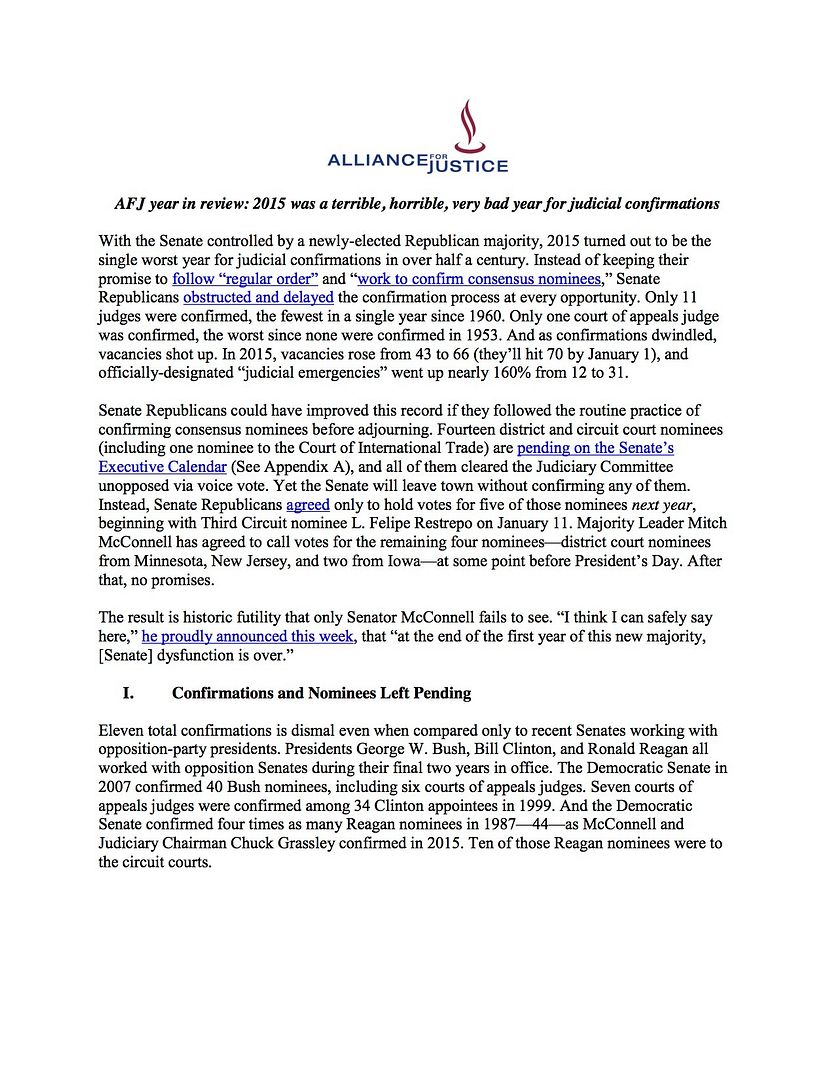
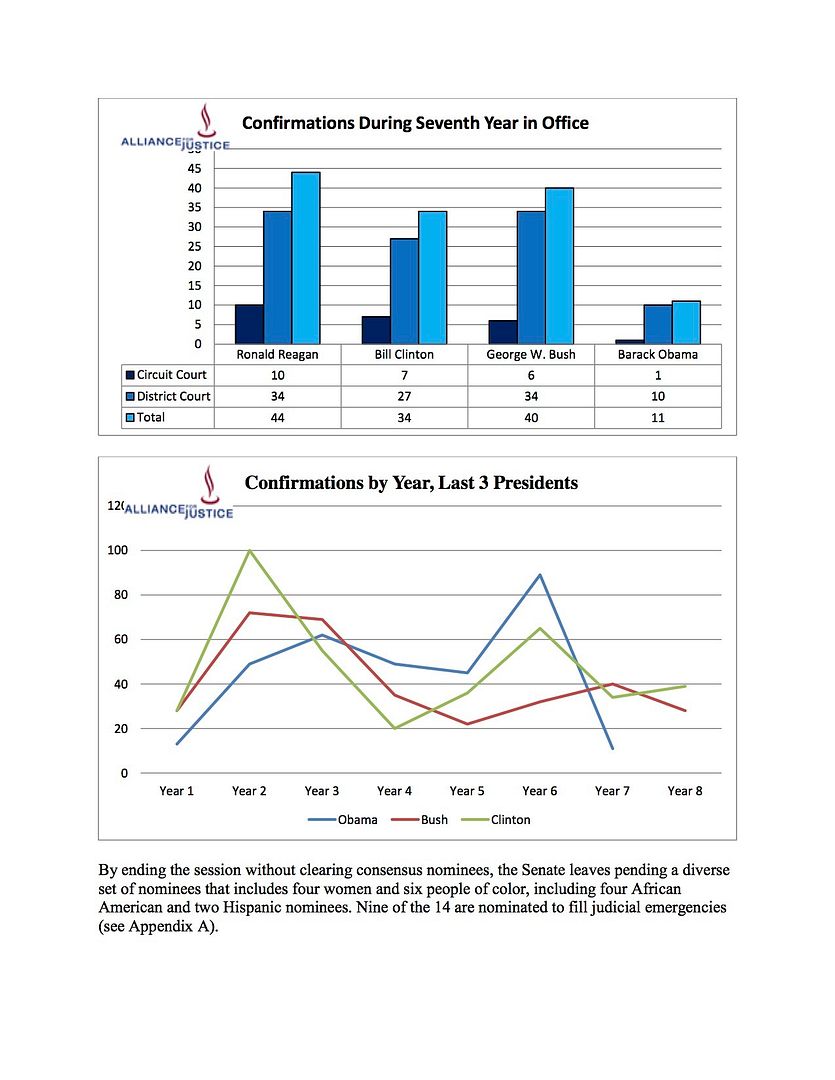
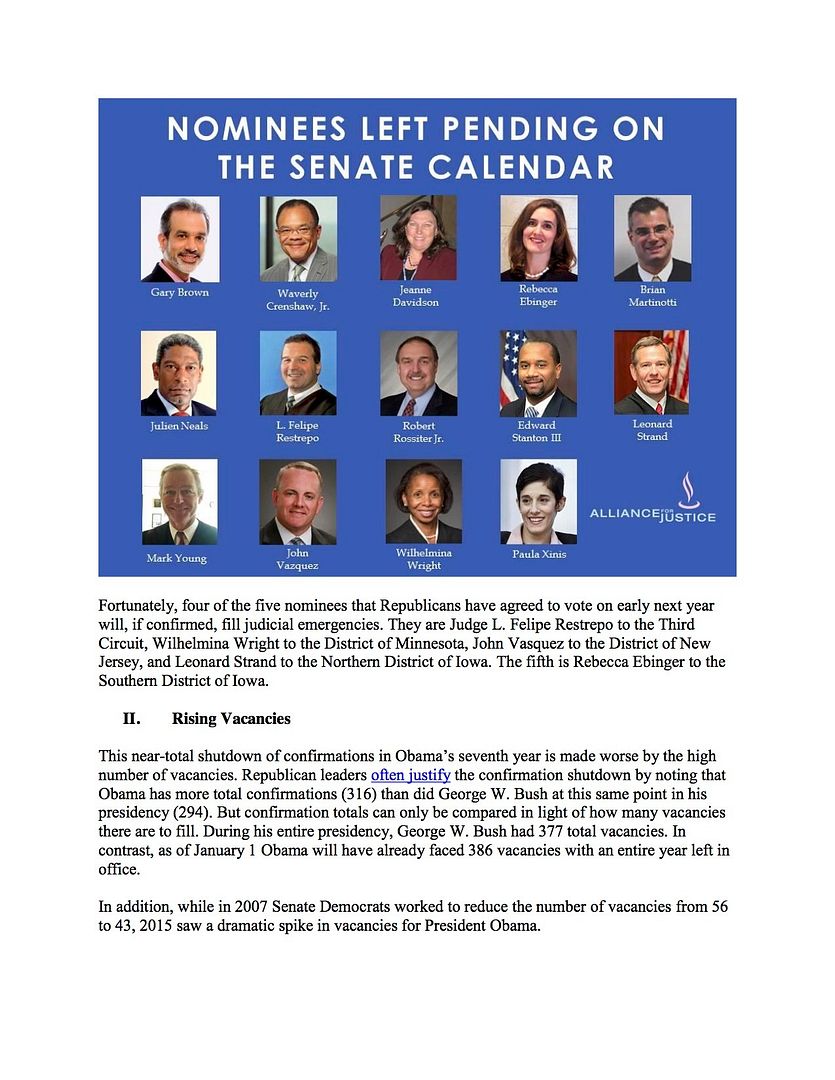
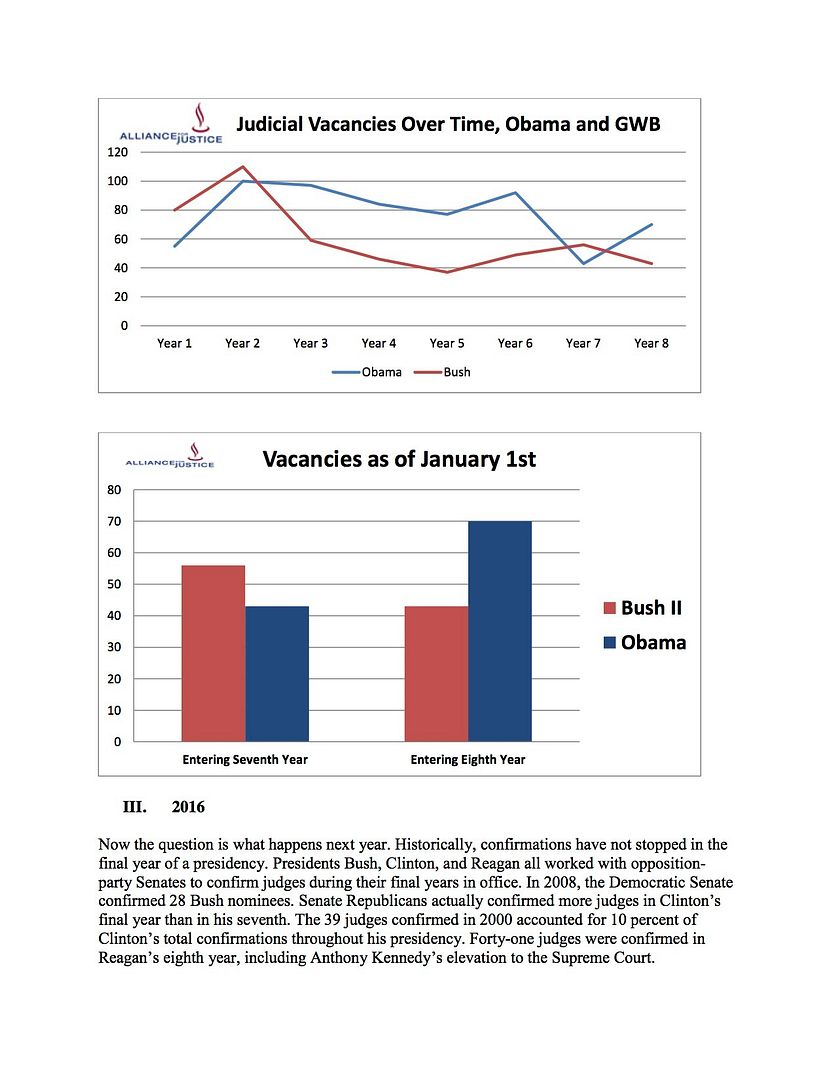
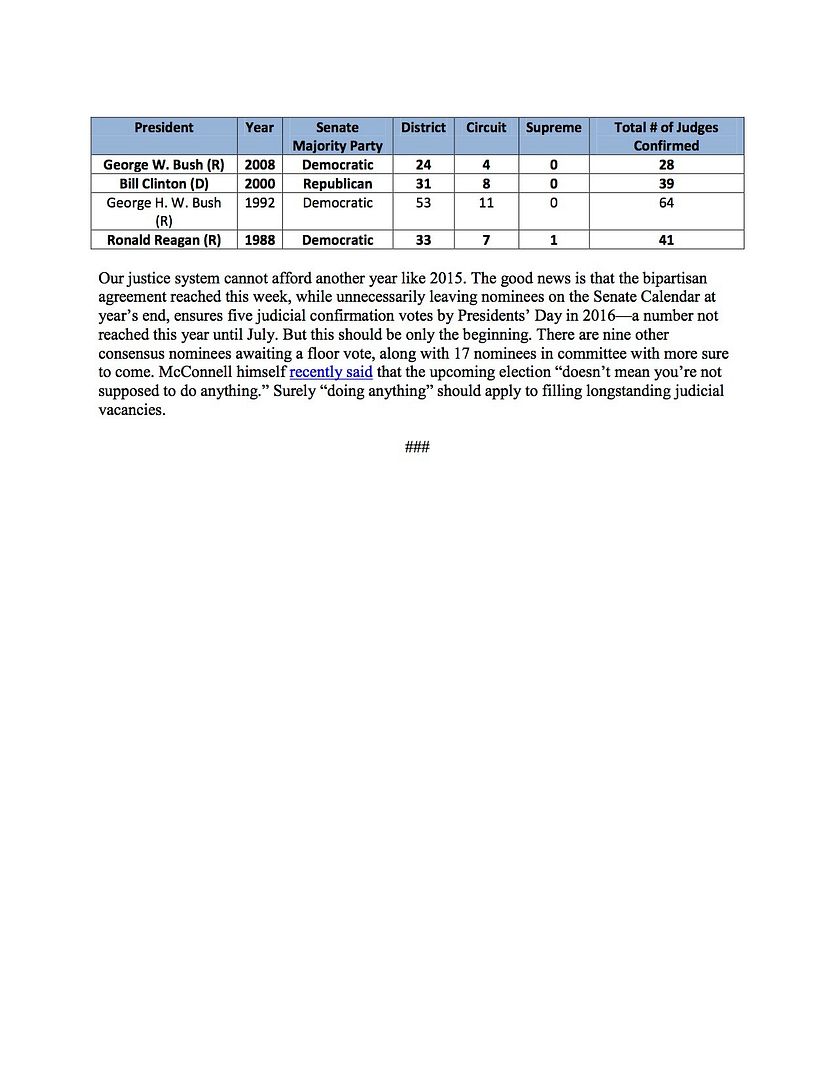
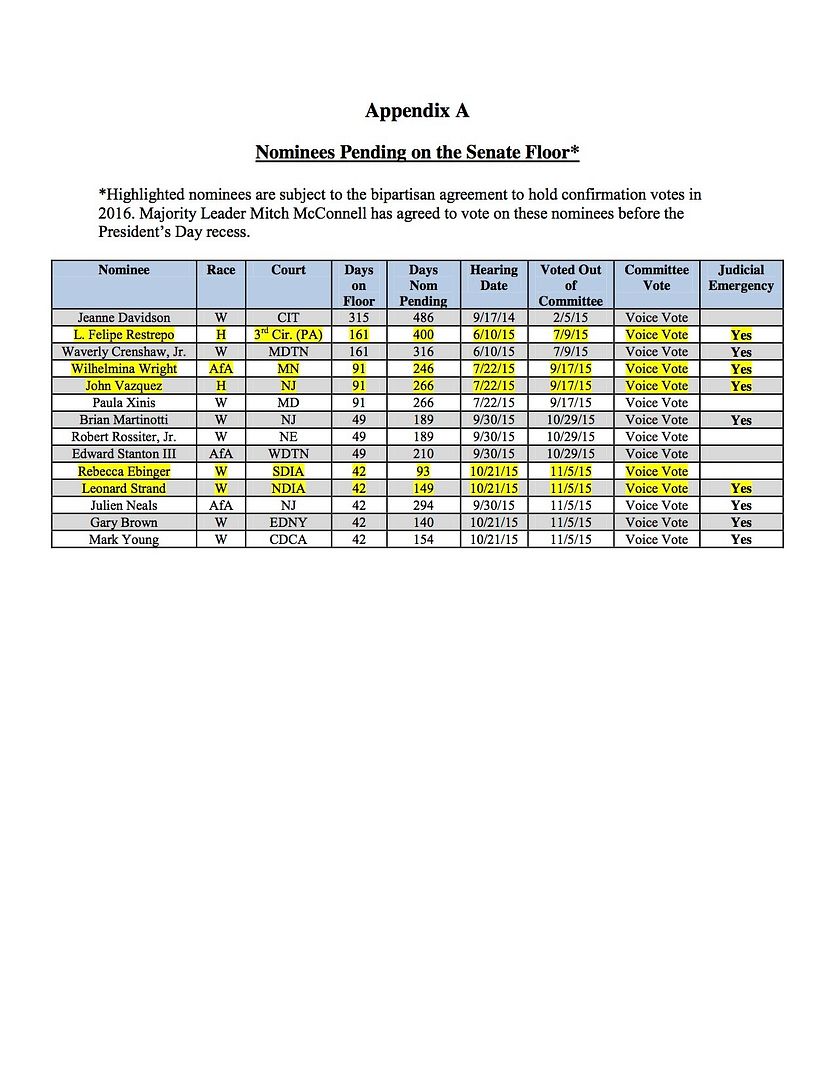
No Comments